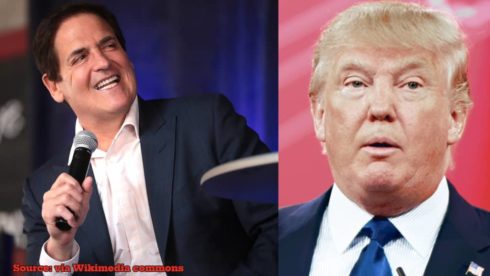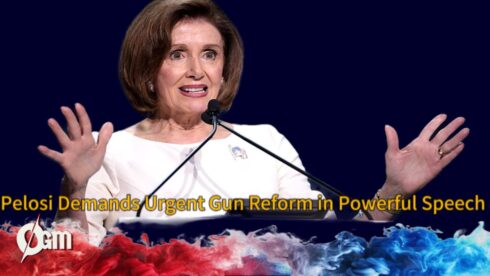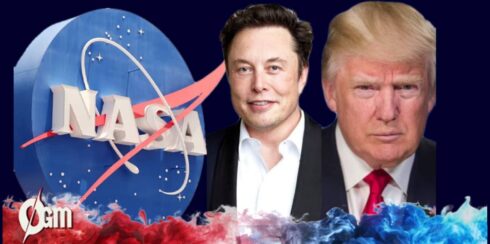Billionaire entrepreneur and “Shark Tank” star Mark Cuban shared his views on how the U.S. inflation rate began its upward trajectory in 2020, attributing some of the rise to decisions made by then-President Donald Trump during the early days of the COVID-19 pandemic. Mark Cuban’s comments highlight the complexity of inflationary pressures and how political and economic decisions in 2020 set the stage for today’s economic challenges. Mark Cuban contends that Trump’s interactions with oil producers in early 2020 laid the groundwork for the inflation that is affecting the economy in 2024.
Mark Cuban’s analysis ties back to the unique circumstances surrounding the early COVID-19 response, specifically in the energy sector. In April 2020, when gas prices were plummeting, U.S. oil companies turned to the White House for intervention, fearing they would be unable to sustain production at such low prices. According to Mark Cuban, Trump responded by leveraging his diplomatic ties with Saudi Arabia and Russia to reduce oil production, a move that contributed to a reduction in supply, eventually leading to price increases across various economic sectors.
Oil Companies and the Call for Intervention
During the early months of the COVID-19 pandemic, oil prices dropped significantly as lockdowns worldwide suppressed demand. Gas prices hit historic lows, reaching $1.87 per gallon in April 2020, which led to concerns from U.S. oil companies that such prices could devastate the industry. Oil companies argued that low prices would lead to production cuts, layoffs, and potential bankruptcies within the sector, prompting them to seek help from the Trump administration.
Mark Cuban noted that in response to these concerns, Trump took swift action. He reached out to key global oil players, including Mohammed bin Salman (MBS) of Saudi Arabia and Russian President Vladimir Putin, to negotiate a reduction in oil production. The diplomatic effort succeeded, with Saudi Arabia and Russia agreeing to cut output, which supported higher prices. However, Mark Cuban argued that this intervention disrupted the natural flow of the market, setting the stage for inflation that would persist years after the initial COVID-19 shock.
Production Cuts and the Economic Ripple Effect
By orchestrating a production cut in coordination with OPEC+, the oil cartel led by Saudi Arabia, Trump sought to stabilize the energy market and protect U.S. producers. While the immediate outcome was a stabilization of oil prices, this decision limited supply, which would later contribute to rising prices as the economy began to recover. Mark Cuban’s argument hinges on this production cut’s long-term impact on price stability and inflation, which has affected Americans in the years following the pandemic.
Reduced supply amid increasing demand created a ripple effect throughout the economy. As the U.S. and other countries emerged from lockdown, demand for fuel surged, but production levels were slow to respond due to prior reductions. This imbalance between supply and demand became one of the catalysts for inflation across multiple sectors, including transportation, manufacturing, and goods reliant on energy costs.
Pandemic Policies and Consumer Price Increases
Mark Cuban further emphasized that the decisions made during the pandemic, while intended to provide economic stability, led to significant price increases for American consumers. With energy costs rising, businesses across various industries faced higher operational costs, which they passed on to consumers through price hikes. Mark Cuban suggests that these early policy choices, coupled with subsequent supply chain disruptions and stimulus spending, intensified inflationary pressures.
This inflationary trend impacted not only the price of goods but also the cost of essential services, making it more challenging for average Americans to maintain purchasing power. Mark Cuban’s perspective underscores how inflation is often a result of a series of interconnected events, with the energy sector playing a significant role. Today’s elevated consumer prices, he argues, are a legacy of these early pandemic decisions.
Inflation’s Broader Economic Impact
The inflation sparked in part by 2020’s production cuts has had broader economic implications, affecting sectors far beyond energy. Higher fuel prices influence logistics, manufacturing, and agriculture, leading to an increase in prices for food, electronics, clothing, and other essentials. Mark Cuban pointed out that inflation has particularly hurt lower- and middle-income families, who now face a reduced standard of living due to rising costs across nearly every category.
Economists argue that inflation’s impact on household spending power also dampens economic growth, as consumers have less disposable income to drive demand for goods and services. According to Mark Cuban, understanding the roots of inflation in these 2020 decisions can help policymakers better address current economic challenges, as well as anticipate future inflationary cycles.
Mark Cuban’s Recommendations for Policy Change
As inflation remains a hot-button issue in the U.S., Cuban has advocated for changes in policy to prevent similar issues from arising in the future. He suggests that policymakers should avoid intervening in free-market processes to the extent seen in 2020. Mark Cuban argues that while well-intentioned, interventions such as production cuts disrupt market stability, which can lead to long-term economic consequences like inflation.
Mark Cuban’s insights resonate with Americans seeking answers to the high inflation plaguing the economy today. By analyzing the events of 2020 and their connection to the present economic landscape, Mark Cuban calls for a re-evaluation of the role of government intervention in times of crisis. This stance could inform future policy decisions to prioritize long-term economic stability over immediate industry support, aiming to strike a balance between support for key sectors and the overall health of the economy.














